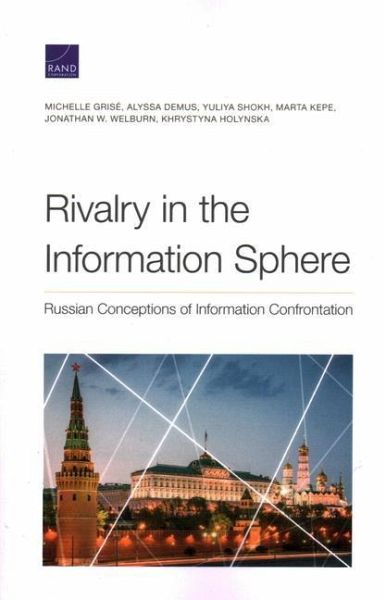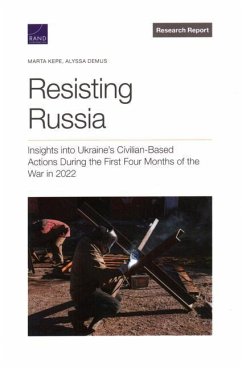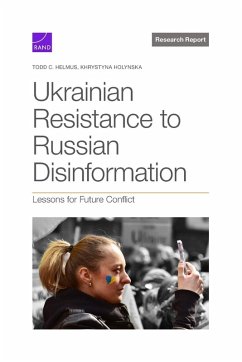
Rivalry in the Information Sphere
Russian Conceptions of Information Confrontation
Versandkostenfrei!
Versandfertig in über 4 Wochen
30,99 €
inkl. MwSt.

PAYBACK Punkte
15 °P sammeln!
Information confrontation, with historical roots in Russian (and Soviet) military thinking, is an important element of Russian military strategy. The Ukrainian experience offers insights into Russia's present-day and future use of information confrontation and hybrid warfare.














